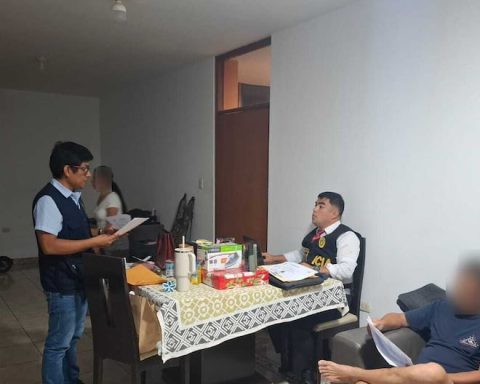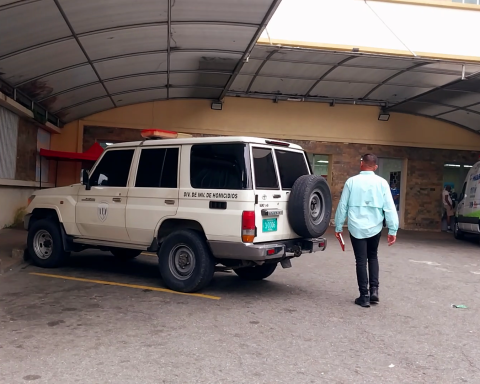The noise of electoral campaigns based on a lot of money and the complacency that overflows in the rallies to which a part of the “coreligionists” go in search of “what is theirs”, do not coincide with the reality certified by accredited surveys that only 24% of the population The political parties view the saga of the adherences that the churches (61%) retain, the figure in particular of the current President (54%) and the business associations (41%).
Concerns about what it would mean for the future of democracy were raised by the reasons that in the last contest (2020) generated an abstentionism of 44% of those registered in the Electoral Registry. Although the coronavirus pandemic weighed as a factor, over the years the lack of attendance at votes has become more acute, especially when it comes to electing municipal authorities and when National Congress. This power of the State only has the agreement of 30% of the citizens consulted, an institutionally risky unpopularity that would explain the little importance that voters give to the legislative line in which irritating privileges and disconnection of social claims abound.
Already in the past decade, in an intellectual debate published by the publication “País Temático” (Dominican) the warning emerged that the country’s political parties had entered into a delicate process of loss of legitimacy and trust in the eyes of the citizenry. They were reproached for having become promotion machines detached from the demands of the voters and distanced from promoting ideological and doctrinal values while abstention levels increased between 24% and 30% in elections held up to the year 2000.
Previously, the political analyst of the newspaper HOY, rosary spinal, alerted public opinion from his column that, regarding what was happening in the Dominican Republic and other countries, electoral abstention contradicts one of the fundamental principles and achievements of democracy, which is that the people elect their rulers . Although it is not a complete indicator of citizen satisfaction or dissatisfaction, it is often used to measure the legitimacy of political processes, he argued.
Can read: Government and institutions design 18 policies to benefit families
they roll downhill
The Political Culture Survey promoted by the Institute for Social Research for Development (ISD), the findings of which this newspaper disclosed in a series of separate articles, is an indication of the continuous decline in public esteem experienced by political parties portrayed as “the less reliable institutions”, keeping company with the Congress and the National Police.
Measured individually, the confidence of the citizens in the party groups continues to be of low levels for the generality with the Partido Revolucionario Moderno (PRM) the current one in the government, with 39% in its favor, followed by the Fuerza del Pueblo with a 35% and the Dominican Liberation Party located at 26% in the most significant drop coming from 45.8% in 2017. The others: the PRSC with 23% and Alianza País with 20%. The absence in the study of the PRD led to the residual by the rout that made the PRM the most militant political force was not explained. The same “jacho” that Professor Juan Bosch established but with another color and other attitudes.
The ISD applied a nationwide survey in person in homes with a sample of 2,500 people of legal age, concluding that democratic institutions are in a crisis of confidence and therefore of legitimacy, although some of them experienced timid increases in comparison with a similar studies in 2021.
Of course, worrying early signs appeared for those who in less than two years would militate against re-election, since the poll personally placed President Luis Abinader at an important level of confidence along with the churches and the Armed Forces, with an approval of 54%, although registering (in the framework of the general decline) a decrease of 11.88 percentage points compared to what it obtained in 2017: 68.88%.
compelling reasons
When issuing conclusions about the growing disbelief of the Dominican in democracy and political parties, the Institute for Social Research for Development points out as a first factor the change of government in 2020 “due to accusations of corruption against the party that had been in power.” power for sixteen years” underlining “the discontent of the citizenry in the face of alleged acts of administrative corruption and the impunity around them”, at least until the Public Ministry was converted by the incoming regime into an active independent entity.
The recently published study highlights the low level of trust in political parties as an expression of a profound crisis of legitimacy of traditional institutions of representation. He also attributes it to a feeling in society that “the decisions made by those who govern are not connected to the interests of the population at the same time that they mainly benefit those who hold power or are related to it.”
The “Thematic Country” (Dominican) emerged with a digital presence as a platform for the debate of political ideas, maintained in one of its recent disclosures that “the Dominican political parties, little by little, have disconnected from the demands and desires of the citizens. Every day they are less representative of society since their internal structures have been taken over by bureaucrats who only think about electoral tactics and moorings.

















